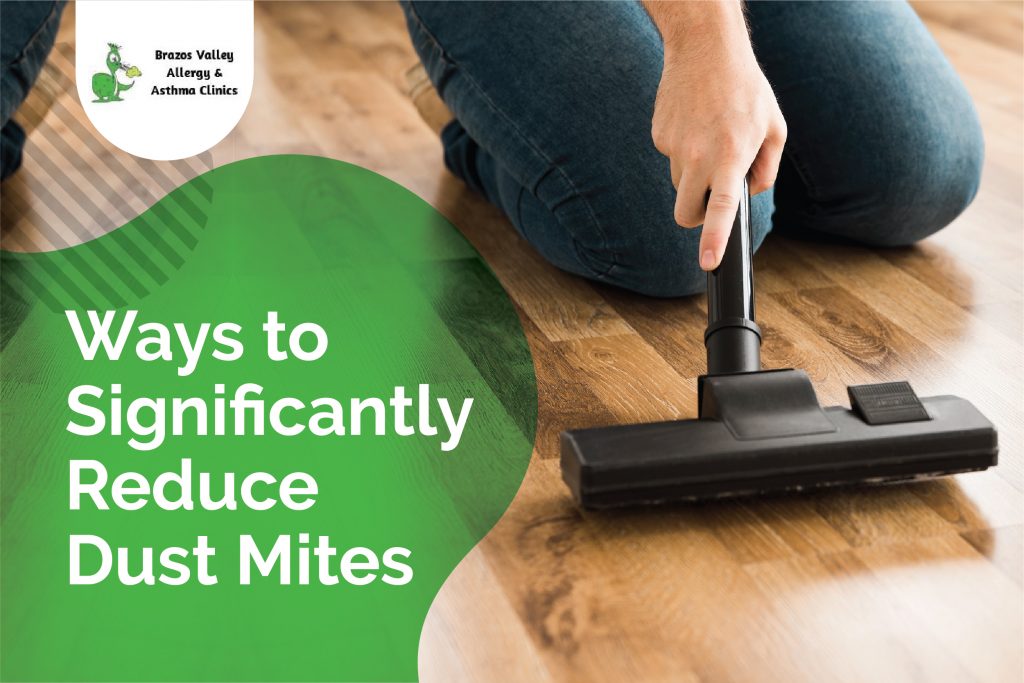Overview
Dust mites. They prowl our beds. They irritate our noses. Dust mites are tiny enough that you can’t even see them with the naked eye and yet they trigger allergy symptoms and asthma attacks. They feed on flakes of human skin and reside in bedding, carpets, upholstery, draperies, and other “dust traps.”
If your home is infested with these microscopic creatures and you have a dust mite allergy, then you need to remedy this situation.
Reducing Dust Mites in Your Home
Avoiding your exposure to dust mites is one of the best strategies for controlling your dust mite allergy symptoms. Here are some ways you can reduce the dust mites in your home:
- Avoid carpet, upholstered furniture, and heavy drapes that collect dust.
- Wash your sheets, pillowcases, and comforters regularly in hot water.
- Keep your mattress and pillows in dust proof or allergen-blocking covers as they prevent dust mites from escaping the mattress and pillows.
- Limit your contact with dust mites by using allergen-proof covers on your mattress, box spring, and pillows.
- Keep the house aired out and dry. It is said that dust mites do well where humidity is greater so try to keep the humidity level below 50%.
- Consider steam cleaning carpets when possible. In addition to cleaning the carpet, the heat of the steam kills dust mites.
- Dust and vacuum your home, especially the bedroom once or twice a week to remove the buildup of allergens.
- When cleaning, use a vacuum cleaner with a HEPA filter or a special double-thickness bag, which collects dust-mite particles.
- Wear a mask if you do the cleaning yourself to make sure that the dust will not trigger your symptoms. If it’s possible, try to have someone who is not allergic do the cleaning.
- Remove carpeting and other dust mite habitats as they provide a comfortable habitat for dust mites. This is especially true if carpeting is over concrete, which holds moisture easily and provides a humid environment for mites.
Treatment for Dust Mites Allergy
If you are allergic to dust mites, there are some medications you can take to reduce the symptoms. You can purchase over-the-counter medications such as nasal corticosteroids, antihistamines, or oral decongestants, to help with the itching, sneezing, and runny nose. These medications can help prevent and treat the inflammation caused by dust mite allergy.
Allergy shots can also treat your dust mite allergy. They can be an excellent long-term solution, especially if over-the-counter medications don’t work anymore. They are cost-effective and can bring long-lasting relief to allergy sufferers. Allergy shots are highly recommended for people with severe allergy symptoms who don’t typically respond to usual medications.
Conclusion
You don’t have to suffer anymore. Dust mite allergies can be prevented, or at least significantly reduced if you do your best to prevent dust mite exposure. If you have a dust mite allergy, then you need to visit a doctor.
Paul Jantzi has spent more than 13 years serving the south-central Texas region as an allergist. He is board-certified in allergy and immunology with prior specialty training in pediatrics and internal medicine. Schedule a meeting with him to learn more about immunotherapy and how it can help with your allergy symptoms.
